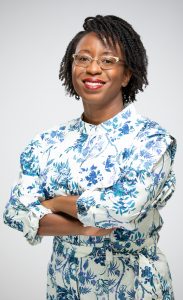 OXFORD, Miss. – The inaugural class of University of Mississippi Diversity Innovator Award recipients are professors who have found ways to not only serve their communities, but also strive to incorporate diversity, equity and inclusion principles into their teaching and research, as well as the lives of their students.
OXFORD, Miss. – The inaugural class of University of Mississippi Diversity Innovator Award recipients are professors who have found ways to not only serve their communities, but also strive to incorporate diversity, equity and inclusion principles into their teaching and research, as well as the lives of their students.
The recipients are Jodi Skipper, associate professor of anthropology and Southern studies; Carrie Smith, assistant professor of psychology; and James Thomas, associate professor of sociology and anthropology.
“The recipients of the inaugural Diversity Innovator award have made exemplary contributions to the University of Mississippi and are all very deserving of this distinction,” said Shawnboda Mead, interim vice chancellor for diversity and community engagement. “Each of them have promoted diversity, equity and inclusion in their scholarship and service to the university.”
Jodi Skipper
Skipper, who also was nominated for the 2020 Mississippi Institutions of Higher Learning Award for Excellence in Diversity and Inclusion, was recognized for her work on Behind the Big House, a slavery interpretation program based in Holly Springs. Since 2012, she has been working with friends Chelius Carter and Jenifer Eggleston, who own an antebellum home in downtown Holly Springs that includes a slave-connected dwelling.
Skipper and her students help develop program content and guide tours. They also work with Gracing the Table, a group that helps facilitate conversations about healing the impacts of slavery in the present.
“It’s nice to be recognized for work that I have been privileged to do,” Skipper said. “Thanks to interested students, colleagues like Drs. Carolyn Freiwald and Shennette Garrett-Scott, and a supportive network in Holly Springs, I have been able to keep going.
“This work is not easy but can be made a lot easier with institutional structures that fully understand and support faculty, staff and students who want to see the university’s mission to transform communities through. This award signals one of more recent university attempts to do just that, since the establishment of the Division of Diversity and Community Engagement.
“I’m not complacent, but that does make me hopeful.”
Carrie Smith
Smith is recognized for her commitment to representation in her department, her classrooms, her research and even in the university’s Faculty Senate.
As the chair of the Department of Psychology’s diversity committee, she has worked with her team to completely revamp the way to recruit and eventually select new faculty and graduate students.
Smith has also worked to see non-tenure-track faculty receive representation in the Faculty Senate. This group of hundreds of Ole Miss faculty members previously had no representation in shared governance.
In her research, Smith examines men and women in the STEM workforce.
“When you’re in the room doing the work, you know you’re doing good work, but you don’t always know that other people see that,” she said. “You feel more like a troublemaker who won’t let it go. But recognition like this shows that our work isn’t being ignored; it’s being valued.”
James Thomas
Thomas spent the last three years researching how a university defines and organizes around diversity. His work has been featured in peer-reviewed journals and in his most recent book, “Diversity Regimes.”
Thomas said he is happy to see his colleagues recognized for doing this work because the departmental nature of a university makes it difficult to see other students, faculty and staff – collaborators – doing similarly critical work.
“This award is important for me personally because of where it comes from,” Thomas said. “The Office of Diversity and Community Engagement is a really important resource on our campus for students, for staff and for faculty who care about anti-racism and want to see our university become a more anti-racist place.
“Anti-racism is at the very core of my teaching, my scholarship and my service to the university and wider communities to which I belong. It’s very humbling, then, to be recognized by the explicitly anti-racist arm of our university.”
Recipients of the award get a $1,000 grant to support their professional development and research efforts.
“Our division is committed to the elevation of faculty and staff who are meaningfully committed to engaging principles of diversity and community engagement in their work,” Mead said. “Often, this work requires thoughtful planning, preparation and relationship building to execute well.
“This award and the corresponding professional development funding is one way we want to honor that work.”


